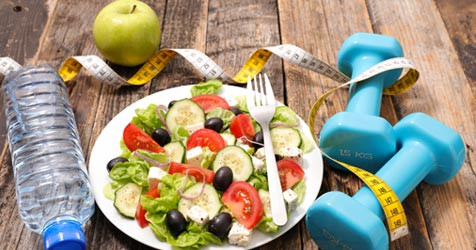WHAT DIET TO FOLLOW AFTER TRANSPLANT?
After your kidney transplant, your diet will still play a large role. As your body adjusts to your new kidney, you may need to make food choices to keep your kidney healthy. If you were on dialysis before you had your transplant, you may find that this diet is easier to follow than the one you followed when on dialysis.
WILL MEDICATIONS AFFECT DIET?
Some medications, which are essential so that the kidney does not get rejected, may impact diet.
Other common medications may also increase your blood fats (cholesterol and triglycerides), blood sugar, and/or blood pressure. Changes in potassium, magnesium, and phosphorus levels are also common. You may need to adjust your diet to reduce intake of these minerals.
WHAT DIET AND EXERCISE IMPROVEMENTS NEED TO BE DONE?
You may find that you have a better appetite after your transplant and are gaining a few unwanted pounds. Here are some ways you can control calories:
- Eat more raw vegetables and fruits
- Eat more lean meat, skinless poultry, and fish
- Use non-fat dairy products
- Drink sugar-free beverages
- Avoid fatty, fried, and sweet foods
- Maintain good blood sugar levels
It is important that you establish an exercise and activity plan. Some tips are:
- Strengthen your heart muscle
- Give you better form and appearance
- Improve your endurance
- Keep your bones healthy
- Set up an exercise program with your doctor’s advice and get started as soon as you are permitted.
HOW MUCH FLUID DOES ONE NEED TO TAKE?
Doctor may ask you to drink 3-4 litres of water each day. This is to prevent dehydration while your new kidney is learning to concentrate urine. Carefully track your intake and output on the form provided by your transplant coordinator. Your doctor or coordinator will advise you about your fluid intake based on your lab work. Eventually, you will be able to drink only when thirsty.
IS A LOW-SALT DIET RECOMMENDED?
Most transplant recipients still need to restrict salt. Transplant medications, especially steroids, may cause you to retain fluid. Salt makes this problem worse, increasing fluid retention and raising blood pressure. Controlling blood pressure is very important to the health of your transplant. Your doctor may tell you to limit your salt intake.
IS A LOW-POTASSIUM DIET RECOMMENDED?
As long as your transplant is working well, you should be able to take in normal amounts of potassium from your food. However, some medications can increase your blood level of potassium, while others decrease it. If your blood level of potassium is too high or too low, your doctor may recommend some changes in your diet. If so, a registered dietitian will be able to guide you.
HOW ABOUT CALCIUM AND PHOSPHORUS LEVELS?
In the months after your kidney transplant, your doctor will check for possible bone loss and talk to you about the best way to keep your bones healthy. In the meantime, every adult need about two serving a day from the dairy group (milk, cheese and yogurt or a good calcium or phosphorus substitute). Unless your doctor or dietitian has told you not to use these foods, try to include them in your meals.
WHY KIMS?
The Kidney Transplant at KIMS ranks as one of the most prestigious transplant programs in the country. KIMS team of specialists, including best kidney transplant surgeon in Hyderabad, is highly skilled in the care of kidney transplant patients and living donors. We will work with you every step of the way in your transplant journey, making us one of the best kidney transplantation hospital in Hyderabad.

